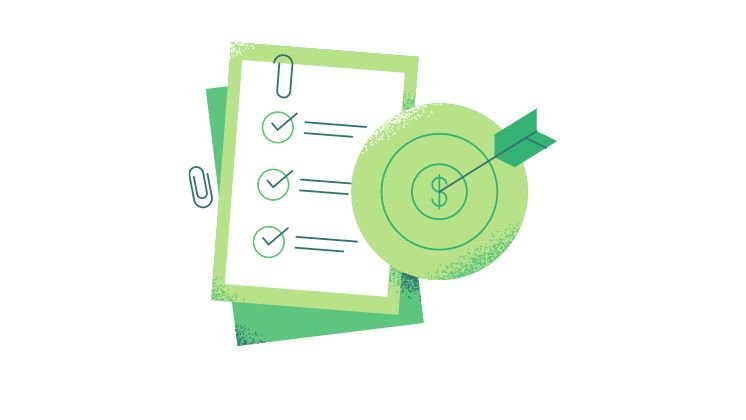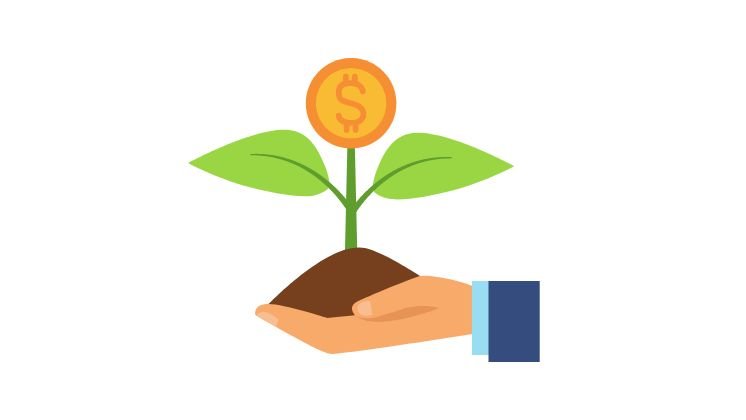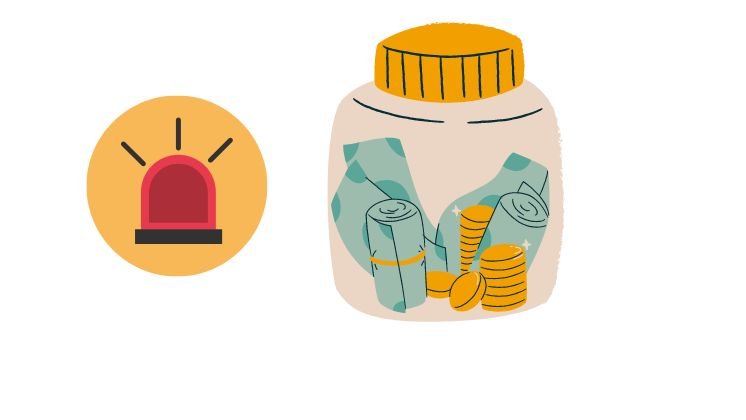
Personal Finance Tips for Saving Money and Budgeting
By • Last UpdatedI. Introduction
Personal Finance and Budgeting The Importance
Personal finance is an essential aspect of managing your money and achieving your financial goals. It involves understanding how to budget, save, and invest your money in a way that allows you to live comfortably today and plan for the future. One of the key components of personal finance is saving money, which involves setting aside a portion of your income for emergencies, future expenses, and long-term financial goals.
Budgeting is also an important aspect of personal finance, as it allows you to track your spending, identify areas where you can cut costs, and allocate your money in a way that aligns with your financial goals. By being financially responsible and taking control of your money, you can improve your financial stability, achieve your goals, and reduce stress related to money. In today's world, where there are so many financial options and obligations, it's important to understand personal finance and how to make the most of your money.
Benefits of Being Financially Responsible

Being financially responsible has many benefits that can help you live a more secure and comfortable life. One of the most significant benefits is the ability to save for emergencies and unexpected expenses. When you are financially responsible, you are able to set aside a portion of your income in an emergency fund, which can provide a safety net in case of unexpected expenses or income disruptions.
Having an emergency fund can help reduce stress and financial insecurity, as it provides a way to handle unexpected expenses without having to rely on credit cards or loans. Being financially responsible also allows you to reach your financial goals, whether they be short-term goals, such as saving for a down payment on a home, or long-term goals, such as saving for retirement.
By budgeting, saving, and investing wisely, you can work towards achieving your financial goals and securing your financial future. In addition to these benefits, being financially responsible can also help improve your credit score and give you more financial freedom and flexibility. By understanding your finances and making responsible financial decisions, you can enjoy the peace of mind and security that comes with financial stability.
II. Create a budget
Importance of Creating a Budget

Creating a budget is an essential step in managing your personal finances and achieving your financial goals. A budget is a plan that outlines how you will allocate your income and expenses in order to meet your financial goals and stay on track with your spending.
By creating a budget, you can see exactly where your money is going and identify areas where you can cut costs or save money. This can be especially helpful if you are trying to save money or pay off debt, as it allows you to allocate your resources in a way that aligns with your financial goals.
Creating a budget can also help you identify unnecessary expenses and eliminate them from your spending, which can free up more money for saving or investing. In addition to saving money, creating a budget can also help you manage your cash flow, track your spending, and plan for the future. By understanding your financial situation and setting clear financial goals, you can make informed decisions about your money and achieve financial stability. Overall, creating a budget is a crucial step in managing your personal finances and achieving your financial goals.
Outline Steps for Creating a Budget
There are several steps that can be helpful when creating a budget. One of the first steps is to track your expenses. This involves keeping track of all the money you spend, including bills, groceries, entertainment, and other expenses.
This can be done through the use of budgeting apps, spreadsheets, or even by simply writing everything down. Tracking your expenses can help you get a clear picture of where your money is going and identify areas where you may be overspending.
Next, it's important to set financial goals for yourself. This can include short-term goals, such as saving for a down payment on a home or paying off credit card debt, as well as long-term goals, such as saving for retirement or building an emergency fund. Setting financial goals can help you focus your budget and allocate your money in a way that aligns with your priorities.
Once you have a clear picture of your expenses and financial goals, you can start to identify areas for improvement. This may involve cutting unnecessary expenses, finding ways to save money on bills or groceries, or finding ways to boost your income. By identifying areas for improvement, you can make adjustments to your budget that will help you save money and reach your financial goals.
Overall, creating a budget involves tracking your expenses, setting financial goals, and identifying areas for improvement. By following these steps, you can gain a better understanding of your financial situation and make informed decisions about how to allocate your money in a way that aligns with your goals.
III. Cut Costs and Save Money
Ways to Cut Costs and Save Money

There are many ways to cut costs and save money, and finding the right strategies for you will depend on your personal financial situation and goals. One way to save money is by reducing expenses.
This can involve finding ways to save on bills, such as by negotiating with service providers or switching to a cheaper plan. It can also involve finding ways to save on everyday expenses, such as by cooking at home instead of eating out or shopping around for the best deals on groceries and other necessities.
Another way to save money is by shopping for the best deals. This can involve comparison shopping, using coupons, and taking advantage of sales and discounts. By doing your research and shopping around, you can often find ways to save on the things you need.
Cutting unnecessary expenses is another effective way to save money. This can involve eliminating unnecessary subscriptions or memberships, canceling services you don't use, or finding free alternatives to things you would normally pay for. By cutting unnecessary expenses, you can free up more money for saving or investing.
Overall, there are many ways to cut costs and save money, and finding the strategies that work best for you will depend on your financial situation and goals. By being mindful of your spending and finding ways to reduce expenses and save money, you can improve your financial stability and reach your financial goals.
Tools and Resources to Cut Costs
There are many tools and resources available that can help you save money and budget effectively. Price comparison websites are a great resource for finding the best deals on products and services. By using these sites, you can easily compare prices from different retailers and choose the option that offers the best value.
Budgeting apps are another useful tool that can help you track your expenses and create a budget. Many of these apps offer features such as expense tracking, budgeting tools, and alerts when you are approaching your budget limits.
In addition to price comparison websites and budgeting apps, there are many other resources that can help you save money and budget effectively. For example, you can find free financial advice and tools on websites such as the National Foundation for Credit Counseling or the Financial Industry Regulatory Authority.
There are also many financial advisors and resources available through banks, credit unions, and other financial institutions that can help you with budgeting and saving money.
Overall, there are many tools and resources available that can help you save money and budget effectively. By taking advantage of these resources, you can gain a better understanding of your financial situation and make informed decisions about how to allocate your money in a way that aligns with your goals.
IV. Boost income
Ways to Increase Income

There are many ways to increase your income, and finding the right strategies for you will depend on your skills, interests, and financial goals. One way to increase your income is by negotiating for a raise at your current job.
If you have been consistently performing well and have made valuable contributions to your company, it may be worth discussing a raise with your boss. Before you ask for a raise, be sure to research what is a fair salary for your position and industry, and come prepared with examples of your achievements and the value you have brought to the company.
Another way to increase your income is by starting a side hustle. A side hustle is a way to earn additional income by doing something you enjoy on the side, such as freelancing, selling products or services, or teaching a skill you have. A side hustle can be a great way to supplement your income and pursue your passions.
Looking for new job opportunities is another way to increase your income. If you are not satisfied with your current job or feel that you are underpaid, it may be worth exploring other job opportunities. Be sure to research the job market and understand what is a fair salary for your position and industry, and consider networking and reaching out to recruiters to help you find new opportunities.
Overall, there are many ways to increase your income, and finding the right strategies for you will depend on your skills, interests, and financial goals. By taking steps to boost your income, you can improve your financial stability and reach your financial goals.
Benefits of Having Multiple Streams of Income
Having multiple streams of income can be a powerful way to improve your financial stability and reach your financial goals. A stream of income is any source of money that you receive on a regular basis, such as a salary, rent, or investment income. By having multiple streams of income, you can diversify your income sources and reduce your financial risk.
One benefit of having multiple streams of income is that it can help you save money. When you have multiple sources of income, you are less reliant on any one source, which can provide a buffer in case of unexpected income disruptions. This can be especially helpful if you are trying to save money or pay off debt, as it can provide a consistent source of income to support your financial goals.
In addition to helping with saving money, having multiple streams of income can also help you reach your financial goals faster. By having multiple sources of income, you can increase the amount of money you are able to save or invest, which can help you reach your financial goals more quickly.
Overall, having multiple streams of income can provide numerous benefits, including increased financial stability, the ability to save more money, and the ability to reach financial goals faster. If you are interested in building multiple streams of income, it may be worth exploring options such as starting a side hustle, investing in real estate, or pursuing other passive income opportunities.
V. Save for emergencies
Importance of Having an Emergency Fund

An emergency fund is a savings account that is set aside for unexpected expenses or emergencies. It is an important component of personal finance and can help protect against financial insecurity in case of unexpected expenses or income disruptions.
Having an emergency fund can be especially helpful in times of financial stress, such as during a recession or when you experience an unexpected expense, such as a car repair or medical bill. By having an emergency fund, you can pay for these expenses without having to rely on credit cards or loans, which can help reduce financial stress and protect your credit score.
In addition to providing financial security in times of crisis, an emergency fund can also help you reach your financial goals more quickly. By setting aside money in an emergency fund, you can reduce the need to tap into your savings or investments for unexpected expenses, which can help you preserve your savings and reach your financial goals more quickly.
Overall, having an emergency fund is an important aspect of personal finance and can provide financial security and help you reach your financial goals. If you don't have an emergency fund, it may be worth starting one and setting a goal for how much to save.
Building an Emergency Fund
Building an emergency fund can be a helpful way to protect against unexpected expenses and improve your financial stability. Here are some steps you can take to build an emergency fund:
- Set a savings goal: Determine how much money you want to save in your emergency fund and set a goal for how long you want to save. This will depend on your financial situation and goals, but a good rule of thumb is to aim for at least three to six months' worth of living expenses.
- Automate your savings: Set up automatic transfers from your checking account to your emergency fund account so that you can save money consistently. This can help you save more money without having to think about it.
- Find ways to save more money: Look for ways to cut costs and save more money, such as by reducing expenses, shopping for the best deals, or finding ways to boost your income. By saving more money, you can reach your emergency fund goal faster.
- Keep saving: Once you reach your emergency fund goal, continue to save money in your emergency fund account to prepare for future emergencies. This can help you maintain financial stability and protect against unexpected expenses.
Overall, building an emergency fund requires setting a savings goal, automating your savings, finding ways to save more money, and continuing to save over time. By following these steps, you can build a strong emergency fund that can protect against unexpected expenses and improve your financial stability.
Top 10 Brilliant Money-Saving Tips
- Make a budget: Creating a budget can help you track your expenses and identify areas where you can cut costs.
- Cut unnecessary expenses: Look for ways to reduce expenses, such as by canceling subscriptions or memberships you don't use or finding free alternatives to things you would normally pay for.
- Shop around for the best deals: Compare prices and shop around to find the best deals on the things you need.
- Negotiate bills and service fees: If you feel that you are paying too much for a bill or service, consider negotiating with the provider for a lower rate.
- Use coupons and take advantage of sales: Look for coupons and take advantage of sales to save money on everyday expenses.
- Reduce your energy usage: Look for ways to reduce your energy usage, such as by using energy-efficient appliances and turning off lights and electronics when not in use.
- Cook at home: Eating out can be expensive, so try cooking at home instead to save money on meals.
- Use cash instead of credit: Using cash instead of credit can help you avoid overspending and can make it easier to track your spending.
- Sell items you no longer need: Consider selling items you no longer need or use to earn extra money.
- Shop secondhand: Consider buying secondhand items instead of new ones to save money on clothing, furniture, and other household items.
VI. Conclusion
In this post, we discussed the importance of personal finance and the benefits of saving money and budgeting. We outlined steps for creating a budget, including tracking expenses, setting financial goals, and identifying areas for improvement.
We also discussed ways to cut costs and save money, such as by reducing expenses, shopping for the best deals, and cutting unnecessary expenses. We mentioned tools and resources that can help with this, such as price comparison websites and budgeting apps.
We also talked about ways to increase income, such as by negotiating for a raise, starting a side hustle, or looking for new job opportunities. We discussed the benefits of having multiple streams of income and how it can help with saving money and reaching financial goals.
We also discussed the importance of having an emergency fund and outlined steps for building one, such as setting a savings goal, automating savings, and finding ways to save more money.
In conclusion, personal finance is an essential aspect of managing your money and achieving your financial goals. By following the tips and strategies discussed in this post, you can improve your financial stability, reach your financial goals, and reduce stress related to money.
We encourage you to take action by implementing these tips and strategies in your own financial planning. If you need additional guidance or support, there are many resources available, such as financial advisors, budgeting apps, and online financial tools, that can help you manage your money and achieve your financial goals.
FAQs
What is personal finance?
Why is saving money important?
What is the 50 20 30 money Rule?
The 50% of your income that is allocated towards essential expenses should cover things like housing, food, utilities, transportation, and other necessities. The 20% of your income that is allocated towards financial goals should be used for things like saving for an emergency fund, paying off debt, or saving for retirement. The 30% of your income that is allocated towards discretionary expenses should cover things like entertainment, travel, and other non-essential expenses.
The 50/20/30 money rule is a general guideline and can be adjusted based on your individual financial situation and goals. The goal of the rule is to help you balance your spending and ensure that you are meeting your essential needs, saving for the future, and leaving some room for enjoyment in your budget.
What is the 70 20 10 money Rule?
The 70% of your income that is allocated toward living expenses should cover things like housing, food, utilities, transportation, and other necessities. The 20% of your income that is allocated towards financial goals should be used for things like saving for an emergency fund, paying off debt, or saving for retirement. The 10% of your income that is allocated towards discretionary expenses should cover things like entertainment, travel, and other non-essential expenses.
Like the 50/20/30 money rule, the 70/20/10 money rule is a general guideline and can be adjusted based on your individual financial situation and goals. The goal of the rule is to help you balance your spending and ensure that you are meeting your essential needs, saving for the future, and leaving some room for enjoyment in your budget.
What is the 30 day rule?
To follow the 30-day rule, you can put a hold on any non-essential purchase for 30 days before deciding whether to go through with it. During this time, you can consider whether the purchase aligns with your financial goals, whether you can afford it, and whether there are cheaper or better alternatives available.
The 30-day rule is a flexible strategy and can be adjusted based on your individual financial situation and goals. By following the rule, you can improve your financial discipline and make more informed and strategic purchasing decisions.
